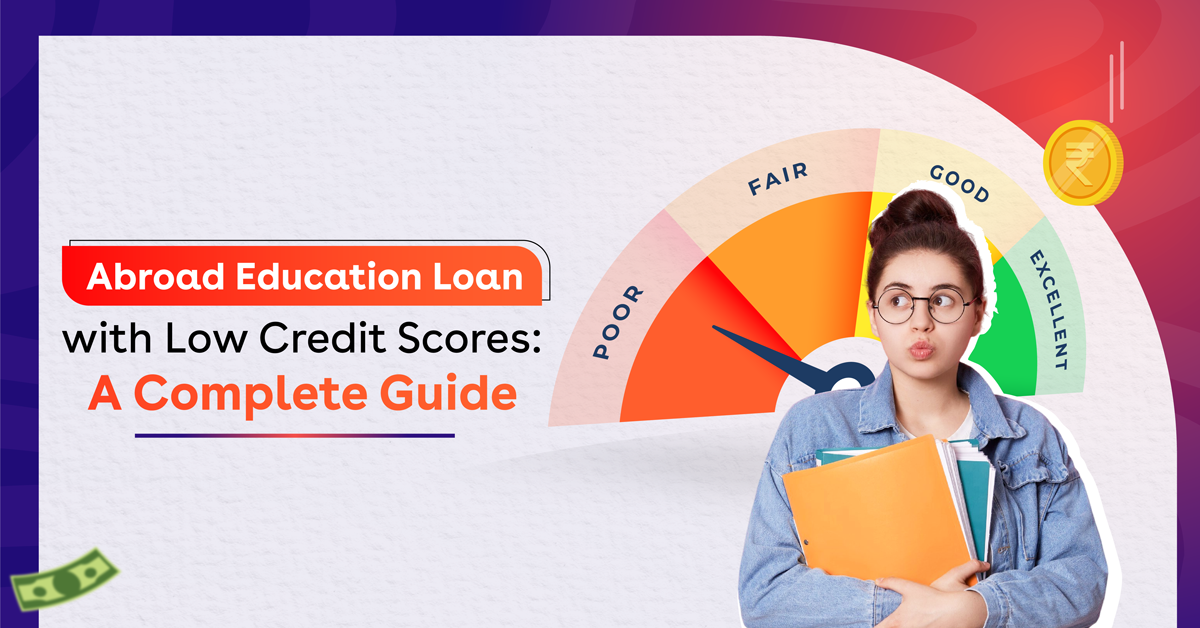Is it Possible to Avail Study Abroad Loan from Multiple Lenders Simultaneously?
The pursuit of higher education abroad is an aspiration for many students, offering exposure to diverse cultures, cutting-edge academic programs, and a global perspective. However, financing an international education can be a significant challenge, leading students to explore various funding options, including education loans. A common question that arises is whether one can borrow an abroad education loan from multiple lenders.
In this article, we will delve into the possibilities, challenges, and considerations associated with obtaining education loans from multiple sources to fund overseas studies.
Understanding Education Loans for Abroad Studies
Education loans, commonly known as student loans, are financial tools designed to assist students in covering the costs associated with their education in a foreign country, including tuition fees, accommodation, books, and other living expenses. These loans can be obtained from various sources, including government banks, and private financial institutions.
One key aspect of education loans is that they are typically disbursed directly to the educational institution or service provider on behalf of the student. Repayment often begins after the completion of the course or a specified grace period, and interest rates of student loans for studying abroad may vary based on the lender and the terms of the loan.
Now the big question arises, can a loan applicant take an education loan from multiple lenders? Let’s find out the answer to this most-asked question ahead.
Can You Borrow from Multiple Lenders?
While it is theoretically possible to obtain education loans from multiple lenders to finance studies abroad, several factors need careful consideration. Most traditional lenders, such as banks, prefer having a clear understanding of the borrower's financial situation and may be cautious about lending when other substantial debts are present.
Here are some points to consider when contemplating multiple education loans.
-
Creditworthiness
Lenders typically assess the creditworthiness of the borrower before approving a loan. Having multiple loans may impact your credit score and make it challenging to secure additional financing. -
Loan Limits
Each lender may have its own loan limit, which could restrict the total amount you can borrow. It's crucial to assess your funding needs and explore lenders whose limits align with your requirements. -
Repayments Terms
Repayment terms, including interest rates and the duration of the loan, vary among lenders. Managing multiple loans with different repayment terms can be complex and may affect your financial stability post-graduation. -
Documentation and Eligibility
Different lenders may have varying eligibility criteria and documentation requirements. Managing multiple applications simultaneously could be time-consuming and may require meticulous attention to detail. -
Currency and Exchange Rate Risks
If you're studying in a foreign country, dealing with multiple lenders may expose you to currency and exchange rate risks. Fluctuations in currency values can impact the overall cost of your education.
Benefits of taking Education Loans from Multiple Lenders
While there are challenges, there are potential benefits to exploring multiple lenders for education loans.
-
Diverse Terms and Conditions
Different lenders may offer diverse terms and conditions, allowing you to choose the most favourable options for each loan. You also need to figure out which bank gives education loan without collateral for abroad if you do not have the means to get a collateral loan. -
Optimized Interest Rates
By comparing interest rates from various lenders, you may find opportunities to minimize the overall cost of borrowing. -
Flexible Repayment Options
Some lenders may provide more flexible repayment options, such as income-driven repayment plans, which can be beneficial for managing multiple loans.
Multiple Loan Application Criteria
The criteria for applying for multiple study abroad loans can vary depending on the lenders and loan programs. However, there are common factors and considerations that applicants typically need to meet. Here are some general criteria:
-
Student Status
Typically, applicants need to be enrolled or accepted into an accredited educational institution for a qualifying program. -
Citizenship/Residency
Lenders may have specific eligibility requirements based on the applicant's citizenship or residency status. Some loans may be available only to citizens or residents of certain countries. -
Co-signer Requirements
Considering the education loan interest rate for abroad study, international students or those with limited credit history may be required to have a co-signer, often a family member or guardian, who has a strong credit history and is willing to take responsibility for the loan if the primary borrower is unable to repay. -
Proof of Enrolment
Applicants typically need to provide documentation confirming their enrolment or acceptance into an eligible educational program. This may include an acceptance letter, enrolment verification, or other relevant documents. -
Loan Amount and Purpose
Applicants must specify the amount of the loan they are seeking and provide details on how the funds will be used for educational expenses such as tuition, fees, accommodation, and other related costs. -
Repayment Ability
Lenders may assess the borrower's ability to repay the loan. This includes consideration of the borrower's future earning potential based on the chosen course of study and career path.
Now, you can decide to take a loan from multiple lenders based on your needs. To help you with the loan procedures, connect with ELAN Overseas Education Loans for smooth and quick loan approval by receiving guidance every step of the way.
- Share this Article
Articles on Overseas Education Loans

Saraswat Bank Overseas Education Loan
In an era of global education, where international degrees..
Low Credit Score Abroad Education Loan
Studying at a leading University abroad brings unmatched excitement...

 Login
Login
